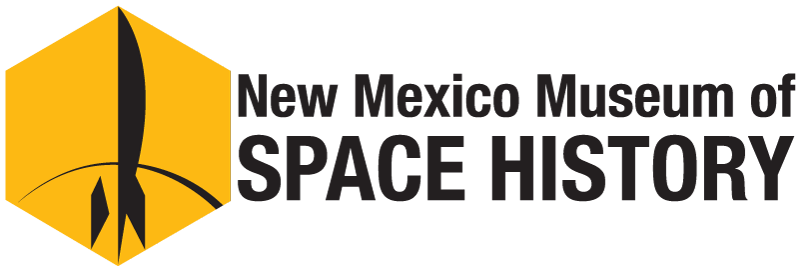Flew on Apollo 8, the first manned mission to orbit the Moon, and commanded Apollo 13.
James A. Lovell Jr., was born March 25, 1928, in Cleveland, Ohio. His father died in a car accident when Lovell was young. He graduated from Juneau High School in Milwaukee, Wisconsin. After attending the University of Wisconsin for two years he transferred to the United States Naval Academy, receiving a Bachelor of Science degree in 1952. He is also a graduate of the Aviation Safety School at the University of Southern California (1961), and of the Advanced Management Program at Harvard Business School (1971).
Upon leaving Annapolis in 1952, Lovell was commissioned an ensign in the Navy. As a naval aviator, he served in a variety of flight assignments before attending the Naval Test Pilot School at Patuxent River, Maryland. After completing flight training there in 1958, he stayed on as a test pilot until 1961. At the same time he was also a program manager for the F-4H Phantom, in charge of evaluating the fighter’s weapon system. He later served as a flight instructor and safety engineer with Fighter Squadron 101 at the Oceana Naval Air Station in Virginia. Captain Lovell logged more than 5,000 hours flying time, including more than 3,500 hours in jet aircraft.
Jim Lovell was selected to be an astronaut by NASA in September 1962. On December 4, 1965, he and Mission Commander Frank Borman, were launched into space on the history-making Gemini VII mission. The flight lasted 330 hours and 35 minutes and was America’s longest space mission until Skylab in 1973. Gemini VII accomplished its primary goal, the first rendezvous of two manned maneuverable spacecraft, a maneuver essential to the planned Apollo program.
Gemini XII, commanded by Lovell with Edwin “Buzz” Aldrin as Pilot, began on November 11, 1966. Mission highlights included three extravehicular activities (EVAs) by Aldrin and a manual rendezvous with an Agena rocket. The four-day, 59-revolution flight brought the Gemini program to a successful close, as NASA began to ready the Apollo program, man’s journey to the Moon.
Lovell next served as Command Module pilot on the epic journey of Apollo 8, from December 21 to 27, 1968. This was the first manned mission to be lifted into earth orbit by the massive seven and a half million-pound thrust Saturn V rocket. On December 24, Lovell, Mission Commander Frank Borman, and Lunar Module pilot William A. Anders became the first humans to orbit the Moon. The crew captivated an estimated billion people in 64 countries on Christmas Eve as they broadcast televised images of the Moon and distant Earth while reading selections of the book of Genesis. The mission ended with a splashdown in the Pacific after a flight of 147 hours and 42 minutes. Time magazine voted the crew of Apollo 8 its “Men of the Year” for 1968.
Lovell completed his fourth and final NASA mission as Spacecraft Commander of Apollo 13, launched on April 11, 1970. He was the first man to journey twice to the Moon (though he never actually landed on it). Apollo 13 was to last ten days; however, 55 hours into the flight the Service Module cryogenic oxygen system failed. Almost 200,000 miles from Earth, Lovell and fellow crewmen, John L. Swigert Jr. and Fred W. Haise Jr., working closely with Houston ground controllers, converted the Lunar Module Aquarius into an effective lifeboat. Their emergency activation and operation of lunar module systems conserved both electrical power and water in sufficient supply to assure their safety and survival while in space, and for the safe return to earth. While passing over the far side of the moon, Apollo 13 was 248,655 miles from earth; the farthest man has yet journeyed into space. With the safe return of Apollo 13 on April 17, Captain Lovell logged a total of 715 hours and five minutes (almost 30 days) in his four spaceflights.
On March 1, 1973, James Lovell retired from the Navy as a Captain. He left NASA at the same time and joined Bay-Houston Towing Company in Houston, Texas. He was promoted to the position of President and Chief Executive Officer on March 1, 1975. On January 1, 1977, Captain Lovell became President of Fisk Telephone Systems, Inc. in Houston and on January 1, 1981, he was appointed Group Vice President, Business Communications Systems, part of the Centel Corporation. He retired from Centel as Executive Vice President and member of Board of Directors on January 1, 1991.
Captain Lovell has received many awards, including the Presidential Medal of Freedom, 1970; NASA Distinguished Service Medal; two Navy Distinguished Flying Crosses; the 1967 FAI De Laval and Gold Space Medals (Athens, Greece); the American Academy of Achievement Golden Plate Award; the City of New York Gold Medal in 1969; the City of Houston Medal for Valor in 1969; the National Academy of Television Arts and Sciences special Trustees Award, 1969; the Institute of Navigation Award, 1969; the University of Wisconsin’s Distinguished Alumni Service Award, 1970; co-recipient of the American Astronautical Society Flight Achievement Awards, 1966 and 1968; the Harmon International Trophy, 1966, 1967 and 1969; the Robert H. Goddard Memorial Trophy, 1969; the H. H. Arnold Trophy, 1969; General Thomas D. White USAF Space Trophy, 1969; Robert J. Collier Trophy, 1968; Henry G. Bennett Distinguished Service Award; and the AIAA Haley Astronautics Award, 1970. In 1995, he was awarded the Congressional Space Medal of Honor, just the ninth person to receive that award, for his part in saving the lives of his Apollo 13 crew.
Jim Lovell co-wrote a book on the Apollo 13 mission, Lost Moon: The Perilous Voyage of Apollo 13. This book was the basis for the 1995 Oscar-winning movie Apollo 13 starring Tom Hanks as Lovell. Lovell has a cameo role as the captain of the recovery ship.

